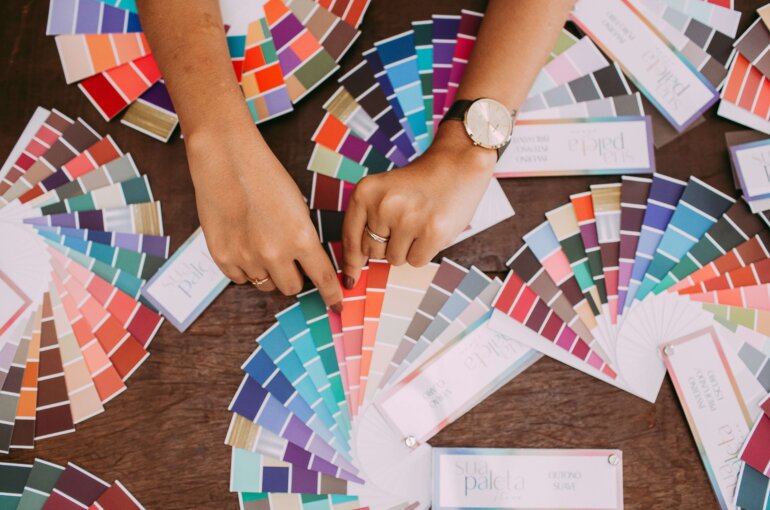

Our thoughts on...

The effect that colour has on a persons mood has been a subject of interest for many years. A lot of private and commercial research has been done into the topic. Big brands spend millions of researching the effects of colour and carrying out colour trials before launch.
Colour has instant impact and is very memorable. People make instant and long standing associations with colours. For this reason considering colour and its effect on emotions is critical in all aspects of design. As a creative design agency colour is important across many aspects of what we do.
Our psychological reactions to colour are in part due to conditioning and also down to nature.
Most of us are probably quite aware that red and black or red and yellow reflect danger in the natural world. We carry these associations across into our general psyche.
The impact that other colours have on us can be traced back to conditioning. It is for this reason that many studies have shown that the impact that colour has on a persons psyche or moods varies quite considerably across different cultures.
We develop associations regarding colour from our every day experiences. As we grow up we then start to automatically experience reminders of that emotion each time we see a colour.
The association of blue with relaxing is built up because of our association with water and the sky. Both of these tend to be calming experiences.
There are three primary colours, which are red, yellow and blue. Each of thee colours has very strong impacts on a person’s mood. Lets take a close look at how these colours affect a person’s mode and what they are associated with.
Each of these three colours are considered primary colours because all other colours can be made by combining these three colours but you cannot make these three colours by combining any other colours.
The colour red has a range of positive and negative associations and the effect of red on the mood can vary considerably depending on what other colour or colours are combined alongside it.
Red and black in nature frequently represent danger. Think of the black widow spider or the Abrus Precatoius seed (which is twice as toxic as Ricin!). In our daily lives we now also associate red with danger and caution in manmade things. Think red “stop” lights, road traffic speed signs and hazard signs.
Red can and frequently does also represent beauty, goodness and energy. Think tomatoes, red roses and the juicy inside of a watermelon. As a result red can also represent similar emotions in man-made things. Red furniture can represent sumptuousness and luxury. Here is a list of positive and negative associations with the colour red:
Power
Strength
Energy
Luxury
Speed
Warmth
Love
Excitement
Danger
Fire
Warning
Strain
Defiance
In the absence of danger the colour red frequently acts as a positive stimulus. It warms and relaxes. However, associate red with danger and it immediately raises the heart rate and increases adrenalin levels and awareness.
Blue tends to have mainly positive associations and effects on the mood. From a psychological perspective blue is often relaxing and calming because of its associations natural elements such as with water and the sky. It brings about feelings of trust and certainty. As such it generally brings about opposite emotions than the colour red. Its calming qualities make it a favourite in bathrooms and bedrooms. In flags the colour blue frequently represents justice.
Calmness
Tranquillity
Intelligence
Stability
Certainty
Loyalty
Justice
Productivity
Cold
Depression
Unfriendly
Yellow is generally considered a positive colour on its own. It makes us think of sunshine, summer, warmth and energy. Combined with black though it immediately signifies danger. Think wasps and bees. Yellow is also the hardest colour for the eye to take in which means that in large amounts it can create feelings of confusion and feel generally overpowering.
Optimistic
Concentration
Warmth
Creativity
Thoughtful
Intelligent
Caution
Danger
Anxiety
The fact that colour does have such an impact on a person’s mood and emotions and the fact that the impact is usually instantaneous means that it should be considered very carefully across all aspects of design.
Colour symbolism is fairly consistent from person to person across specific cultures but can vary a bit from person to person. Just because you love the colour red for everything does not mean that you should build a website for a new spa with heavy use of red! (for example).
For an insightful understanding of the best colour combinations that you should use for different websites watch out for my follow up feature, which will look in detail at how colour should impact web design. I will also take a look at a number of big brand examples, including some serious mega bucks marketing colour screw-ups!




We can offer you a full range of services including graphic design, web design, e-commerce builds and developing digital resources of any level of complexity. We can create both a trendy web design that will cause the “wow-effect” and a well thought-out technological interface.